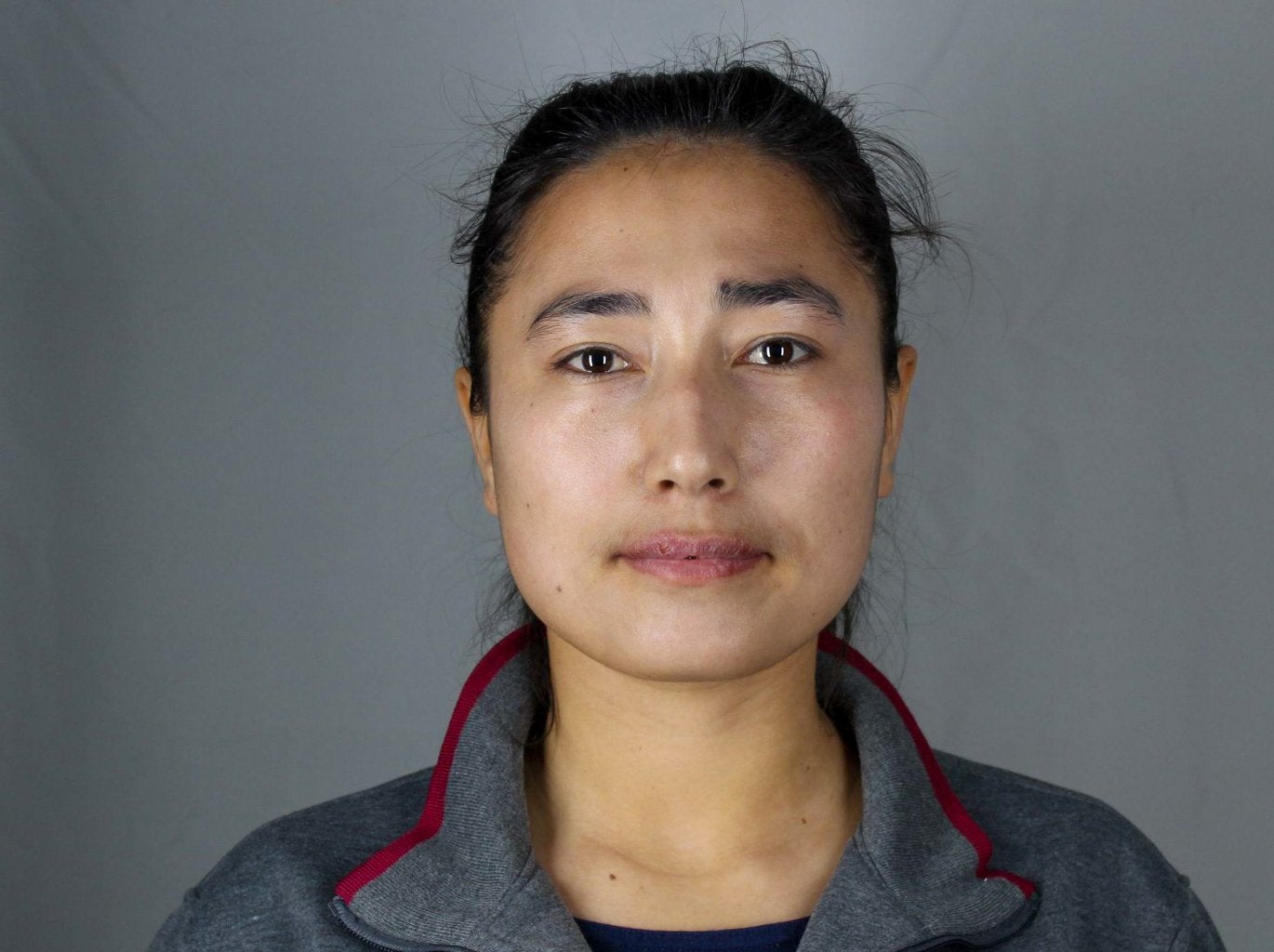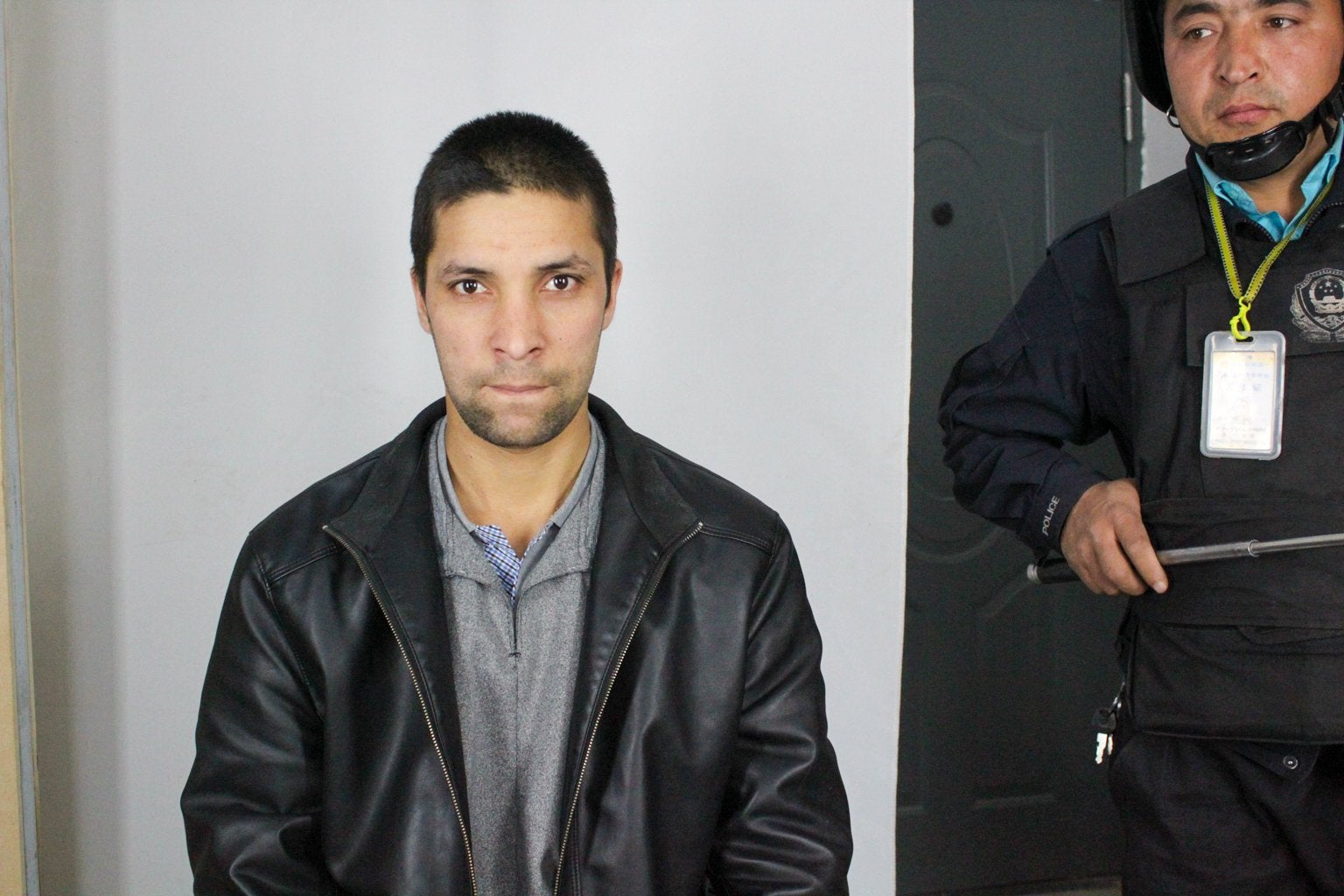Leaked photos from Xinjiang include mugshots of Uyghurs detained for expressing faith
Documents show records of arbitrary detention for as long as a decade for trivial acts, as well as shoot-to-kill policy for those who try to escape
Your support helps us to tell the story
From reproductive rights to climate change to Big Tech, The Independent is on the ground when the story is developing. Whether it's investigating the financials of Elon Musk's pro-Trump PAC or producing our latest documentary, 'The A Word', which shines a light on the American women fighting for reproductive rights, we know how important it is to parse out the facts from the messaging.
At such a critical moment in US history, we need reporters on the ground. Your donation allows us to keep sending journalists to speak to both sides of the story.
The Independent is trusted by Americans across the entire political spectrum. And unlike many other quality news outlets, we choose not to lock Americans out of our reporting and analysis with paywalls. We believe quality journalism should be available to everyone, paid for by those who can afford it.
Your support makes all the difference.Thousands of leaked photographs from Xinjiang in northwestern China have reportedly provided fresh evidence of involuntary mass incarceration of Uyghurs in the region, according to reports published on Tuesday by a group of media outlets.
Data hacked from police computer servers in the region contained over 5,000 police photographs of the minority community taken between January and July 2018. The files don’t extend beyond 2018 as the Chinese government tightened Xinjiang’s encryption standards.
Human rights groups have for years been accusing China of systemically oppressing Uyghurs, an ethnic Muslim minority in the region. Concerns have been raised about widespread abuses, including mass incarceration, forced labour, torture and sexual assault of more than a million Uyghurs in detention centres in the region.

China has denied these allegations of abuse, and after initially denying the existence of a network of camps in the region now describes them as voluntary reeducation centres.
Among these documents, a spreadsheet titled “persons subjected to strike hard because of religion” lists 330 people who were sentenced because of “illegal” religious activities such as studying the Quran.
The “Xinjiang Police Files”, published by the Washington-based Victims of Communism Memorial Foundation, has provided new details on how the communist government mistreated minorities even though Beijing continues to deny the allegations.
The huge cache of data contains thousands of mugshots of detainees, some as young as 15. It also sheds light on the use of police officers armed with machine guns and images of police drills.
Documents show records of arbitrary detention for as long as a decade for trivial acts such as not using the phone in an alleged effort to evade digital surveillance. They also include a shoot-to-kill policy for those who try to escape.
The Chinese government has detained between one to two million Uyghurs muslims and other ethnic minorities in Xinjiang region, the files showed.
A United Nations assessment in 2019 had said that an estimated one million people had been detained in the region. Beijing has denied allegations of rights abuses, saying its policies in the region are aimed at fighting terrorism.
The files also revealed a classified speech by China’s minister of public security confirming that Mr Xi personally gave orders to provide Xinjiang’s overcrowded detention facilities with more security guards and funding, and to “expand the region’s prison and internment system”.
The documents detail the impassioned demands from Chen Quanguo, the former party secretary in Xinjiang, to treat minorities like “dangerous criminals” to prevent camp escapes, and to readily open fire to stop those fleeing.
“These findings are significant because they provide us with frank policy implementation directives along with the thought processes and intentions that made them a reality,” said Adrian Zenz, director and senior fellow in China Studies at the Victims of Communism Memorial Foundation.

“This gives an unprecedented look into the personal attitudes of Chinese authorities and the personal involvement of Xi Jinping. Documents with this kind of insight have never before been published and their revelations are very disturbing,” he added.
Mr Zenz said the files were provided to him by an unidentified hacker who claimed to have downloaded them from police servers. He then passed on the data to more than a dozen media organisations.
The US State Department and the parliaments of Canada and the Netherlands have determined that China’s conduct against Uyghurs constitutes genocide under international law.
Chinese foreign ministry spokesperson Wang Wenbin on Tuesday called the data leak “the latest example of anti-China forces trying to smear China”.
“It is just a repetition of their old tricks. Spreading rumours and lies won’t cloud the judgment of the world and cannot cover up the fact that Xinjiang enjoys stability and prosperity, and residents there are living happy and fulfilling lives,” he said, according to Bloomberg.
The release appears to have been timed to coincide with United Nations high commissioner for human rights Michelle Bachelet’s arrival in Guangzhou this week for the first UN visit of its kind in 17 years.
The visit is due to focus on allegations of human rights abuses against Muslims in Xinjiang. However, critics have raised concerns that the visit would be used as propaganda by the Chinese government and may not yield any significant gains.

Join our commenting forum
Join thought-provoking conversations, follow other Independent readers and see their replies
Comments